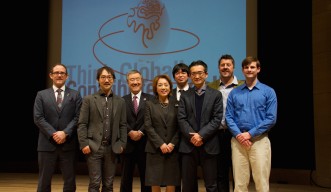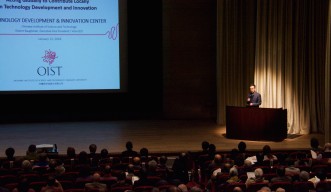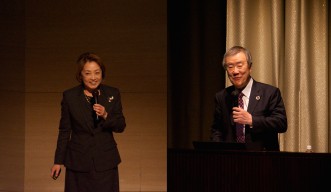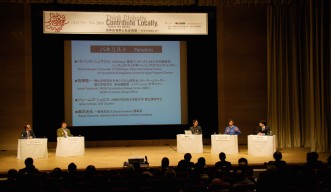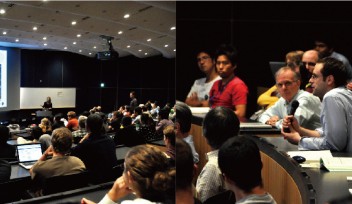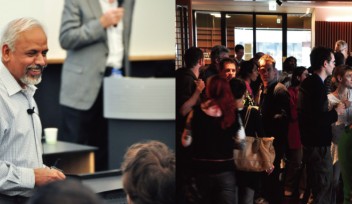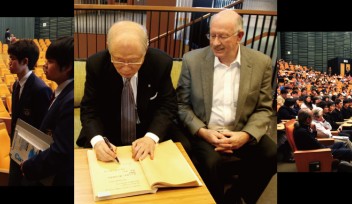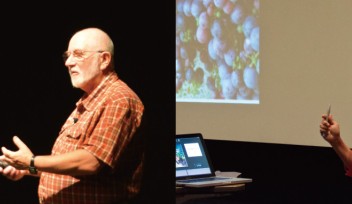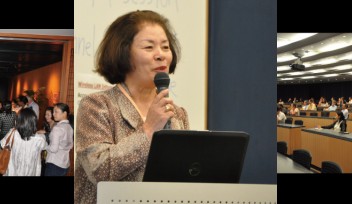Think Globally, Contribute Locally: Science that Matters
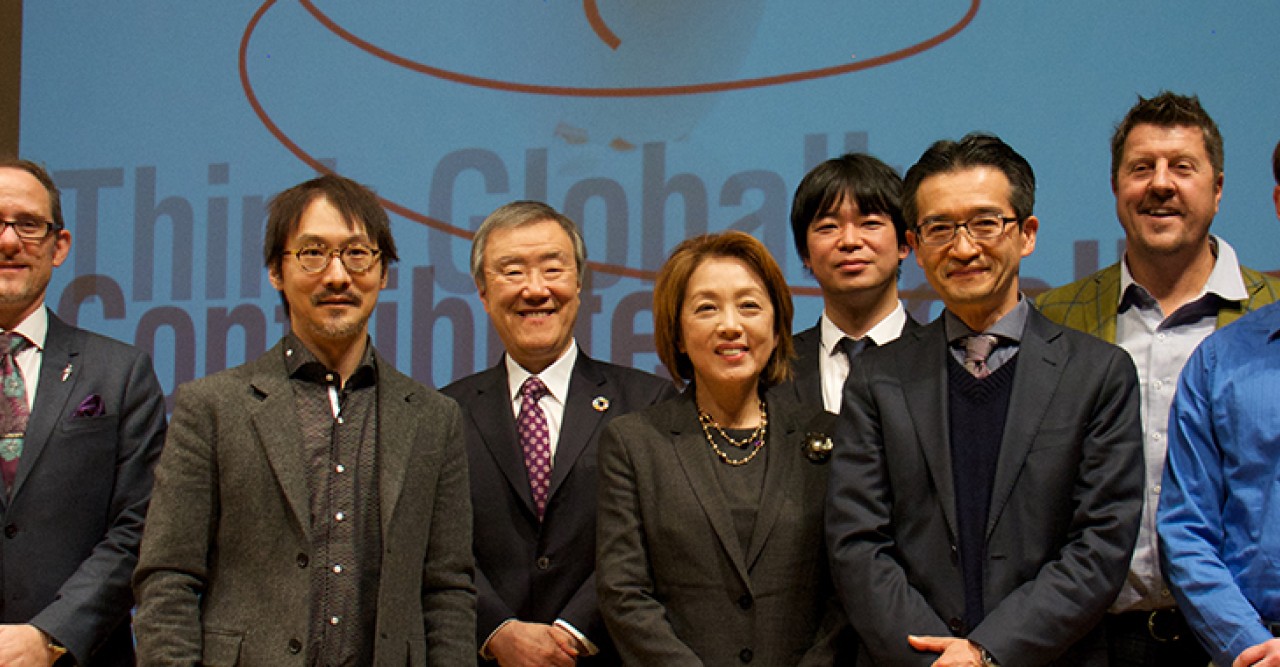
How should scientists contribute to global issues and the development of regional economies in this age of rapid globalization?
On January 13, 2018, the Okinawa Institute of Science and Technology Graduate University (OIST), in collaboration with Nature Publishing Group and Asahi Shimbun in Tokyo, held the “OIST Forum 2018” on the theme of “Think Globally. Contribute Locally. Science that Matters.” Educators, entrepreneurs, and one current Ph.D student at OIST were invited to come together to discuss topics related to science and innovation and the role of educational institutions in fostering young talents who want to contribute to their local community, and beyond that, on a global scale.
Dr. Takanari Ichikawa, Senior Manager of OIST R&D Cluster Programs Section and Technology Licensing Section, took the rostrum on behalf of Dr. Robert Baughman, Executive Vice President for OIST Technology Development and Innovation, and presented OIST’s international and interdisciplinary education and research system, a rarity in Japan’s current educational climate. He spoke of OIST’s potential to be an educational role model for science and technology in Japan, emphasizing OIST’s competitive approach, and its contributions to society on both local and global scales.
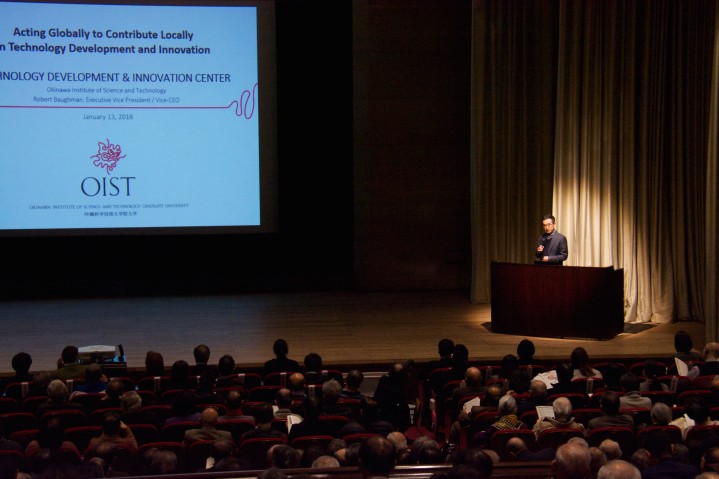
In the subsequent keynote speech, Mr. Haruaki Deguchi, President of Asia Pacific University, Ritsumeikan, explained some of the challenges unique to Japanese society, such as an aging population and a deeply rooted, traditional work culture. He argued that universities are a driving force to develop a competitive future because of their role in providing students with opportunities to meet different people, learn from a body of literature and visit new places. He shared a message for young generations: “Knowledge times thinking power equals innovation. You can get thinking power only by learning from and imitating the experiences of our predecessors.” He also said, in response to a question from the audience, that Japan needs to form a society not segregated by age, in which senior citizens can remain active participants in a workforce.
The second keynote speaker, Dr. Sachiko Kuno, President & CEO of S&R Foundation, explained the different types of entrepreneurial experiences, based on her own experiences of establishing several bio-tech companies and nurturing young talents in science, art and social areas in the U.S. as a scientist. She shared her ideas about taking risks and ways to connect science and innovation, based on her motto: “Think as if to leap and prove as if to climb”. She summarized the process of innovation as follows: first form a hypothesis, second, prove of concept, and third, scale it up. Fourth, measure the social outcome and finally, measure the social impact. Dr. Kuno’s message to young scientists was: “Unleash your creative potential to make the world better! Big vision, Small steps”.
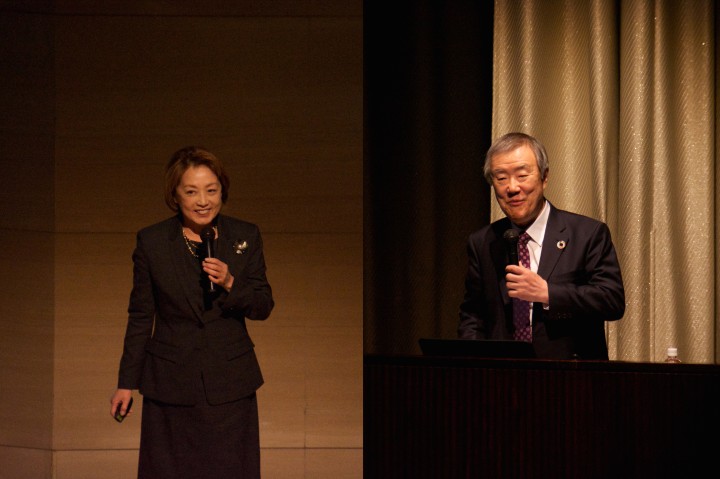
The second part of the forum opened with a panel discussion on the theme of “A Message for Young Generations”. The moderator Dr. Jeffrey Robens, Editorial Development Manager at Springer Nature, welcomed the panelists: Dr. Koichi Takahashi, Team Leader at the Laboratory for Biochemical Simulation, RIKEN Quantitative Biology Center (QBiC); Dr. Naoya Okamoto, Administrative Director of Glocal Academy; Mr. Patrick Newell, Co-founder of TEDxTokyo, Tokyo International School, 21 Foundation & Singularity University Japan Program Director; and Mr. James Schloss, OIST Student.
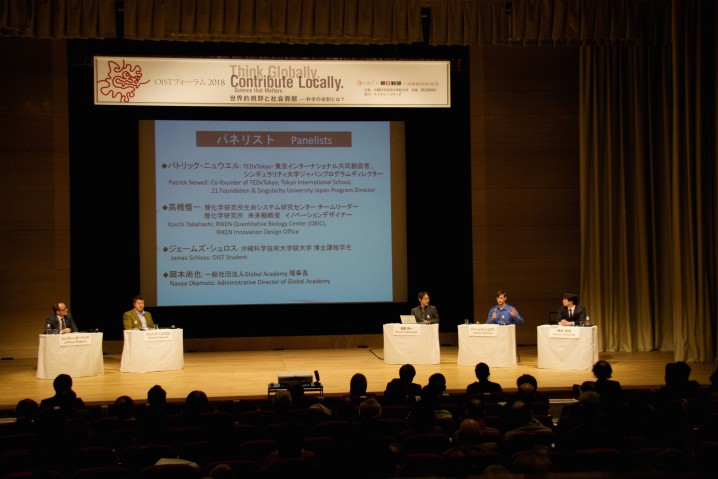
The first question to the panelists was “What is innovation?” While Dr. Okamoto called it “anything which creates new value”, Mr. Schloss said, “Taking what we currently have and improving that in some way is already innovation.” Dr. Takahashi added that “innovation will change many aspects of life, such as the economy, the value of employment or the notion of family, and will bring social change.” Mr. Newell said that, “it is still possible to be very innovative and creative even if you are not necessarily young.”
In response to the second question, “How can scientists contribute to global issues by developing local economy,” Dr. Takahashi said, “there is no need to think of global and local separately because technological innovations of the 21st century model are immediately deployed globally and also locally at the same time. So, you can only concentrate on how to create a high impact technology.” Dr. Okamoto added, “scientists can be seen as a platform of human knowledge.” Mr. Schloss shared the view that “all scientists should be better at communication. Explaining your science and making people around you understand that scientists are not doing magic helps to promote education in the field.”
Mr. Schloss gave a message to young scientists, “Find the way to do what you want to do. The opportunities are endless. Find the right community and work with good people.” Dr. Okamoto continued, “Embrace small progress.” Dr. Takahashi said, “Have a clear vision and decide what you are going to do in the context of a world in which society and technology are becoming increasingly integrated.” Mr. Newell said “Stay curious, try new things, and connect with nature.”
In the closing speech, Dr. Robens, the Master of Ceremony, introduced some innovative international education programs for young scientists such as OIST Science Challenge. He ended the forum by saying, “think globally, act locally and go forward to innovate”.
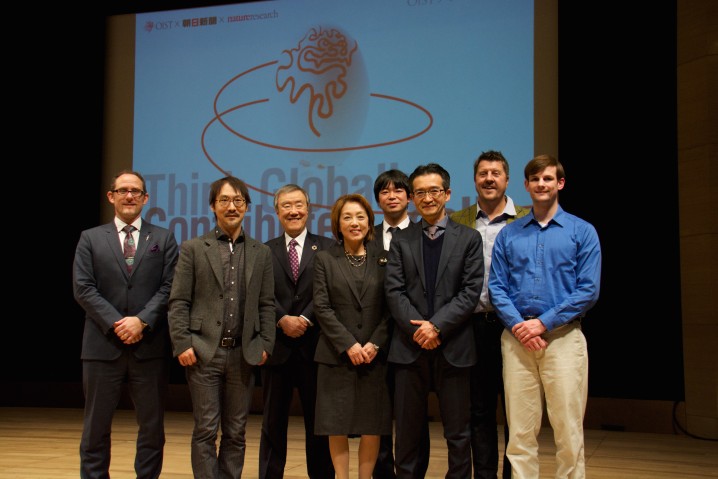
For press enquiries:
Press Inquiry Form










